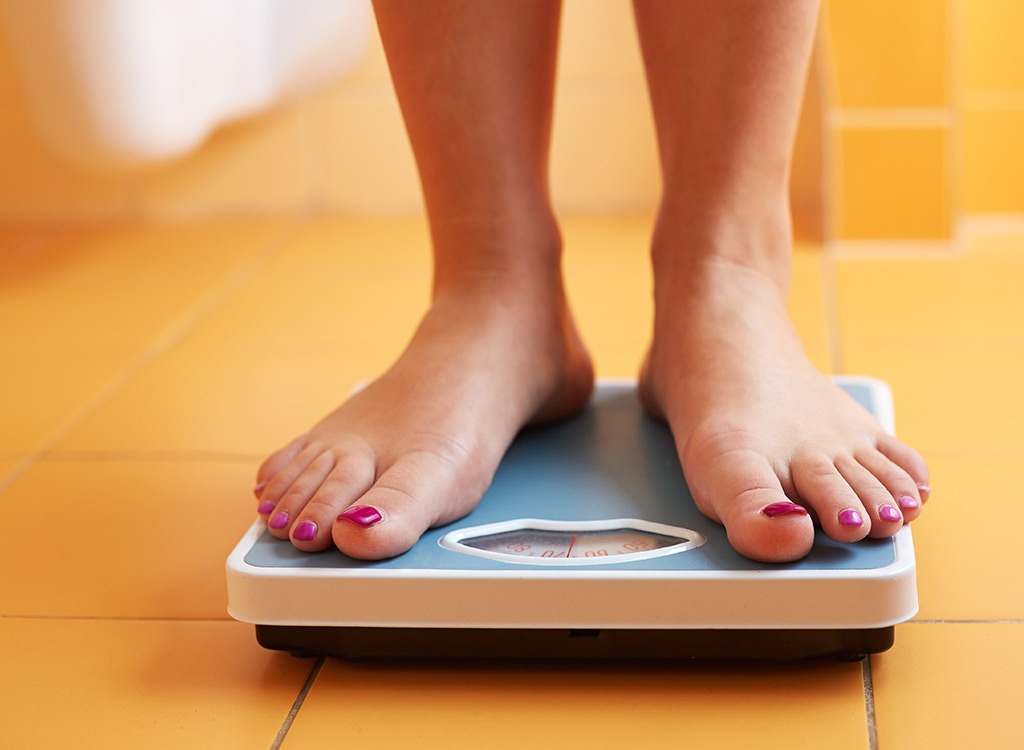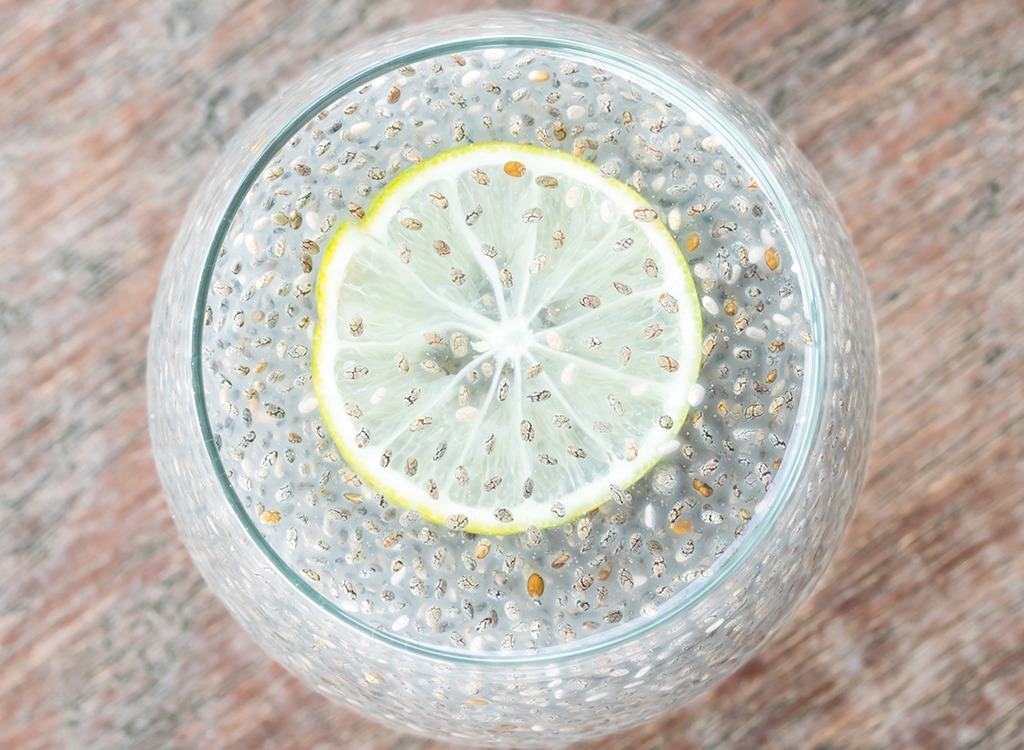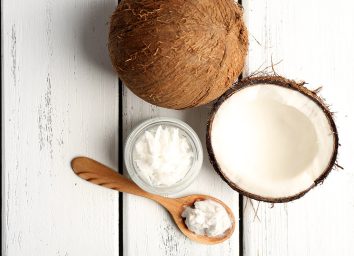12 Best Signs You're on the Right Diet

When we're on a diet, we're always looking for clues that tell us if it's working. But some of these little tests do more harm than good to our psyches and, ultimately, our physiques. Have you…
· Looked at your naked profile in the bathroom mirror after a shower?
· Asked your partner: "do these yoga pants make me look fat?"
· Compared yourself to skinnier friends' vacation pics on Facebook posts?
Why do we even go there? It's almost as if we're trying to bum ourselves out so we have a reason to give up and go out for burritos.
There are more positive and effective ways to tell if your diet is working that can offer encouragement versus discouragement. Following are better measures that tap the power of positive feedback to keep you losing while feeling like a winner. And to live your happiest and healthiest life ever, don't miss these essential 100 Ways to Live to 100!
You Love the Food You're Eating

Regularly eating healthy foods that you enjoy is a good sign that your diet efforts are working. Researchers who study eating behaviors have found an interesting difference between successful and unsuccessful dieters: When low self-control dieters (unsuccessful dieters) think of foods to eat to lose weight they tend to focus on foods they don't like the taste of, Brussels sprouts, for example. By contrast, dieters with high self-control think first about "diet" foods they enjoy, like berries, suggests a study of 542 dieters reported in the journal Psychology & Marketing. "Our data reveals that individuals who are generally more successful at reaching their goals tend to develop more motivating plans regarding the inclusion of healthy, well like items and the exclusion of unhealthy items that are not one's favorite," says lead researcher Meredith David, Ph.D., of Baylor University.
You Set a Realistic Weight-Loss Goal

You lost 3 pounds last week and met your goal of working out four times. And you feel great about your success. One mark of diet plan that's working is growing self-confidence in your ability to succeed. "The more small goals you meet, the more confidence you will gain," says Martha McKittrick, R.D., who writes a blog at CityGirBites.com. Plus it's more likely these small change will start to become part of your lifestyle. For other sneaky ways to melt fat fast, don't miss these 20 Weight Loss Tricks You Haven't Tried.
You Set a Lofty Weight-Loss Goal

The slow and steady approach to weight loss doesn't cut it for everyone. In your case, dropping pounds rapidly during the first weeks of dieting may suggest you're poised to keep losing weight. Several studies have shown that ambitious goals are sometimes associated with better weight-loss outcomes. In fact, a study in the International Journal of Behavioral Medicine found that people who lost weight rapidly were five times more likely to success in their long-term goals because the quick results motivated them to stick with the program.
You Didn't Kick the Dog Today

Or scream at your spouse. Or flip off the jerk who stole your parking place. That's good. It probably means that your diet is balanced. Studies show that weight loss through dieting is often marked by improved mood and cognitive clarity. However, a rotten mood—or hostility, depression, anger, feeling hangry or hungry and angry– could be a symptom of a diet plan that is too low in carbohydrates. Australian researchers followed 106 overweight dieters for a year. Both groups were put on a low-calorie diet. One group's diet was low-carb, high fat; the other was low-fat, high carb. Both groups lost an average of 30 pounds, but the low-carb group scored much lower on measures of psychological well being, suggesting that the low-carb diet may have lowered brain levels of the mood-regulating hormone serotonin.
You Hop Onto a Scale Every Day

It may seem obvious, but weighing yourself on a weight scale can be a very useful way to tell if your diet is working or not. One study of 40 overweight people in PLUS ONE determined that the more often a person weighed himself or herself, the more weight they tended to lose. While the researchers admit the study cannot prove that regular weighing helps people lose weight, the researchers say frequent weighing may help dieters stay motivated and on track. A scale that indicates weight gain may encourage diets to be more vigilant. By a similar token, a record of regular weight loss can motivate dieters to keep up the good work. For other healthy body hacks, read on the these 44 Ways to Lose 4 Inches of Body Fat.
You Hop On a Scale Every Wednesday

If daily weighing is driving you batty, you may not need such constant feedback to keep on track. Once a week is adequate, according to researchers at Cornel University's Food and Brand Lab, as long as you are consistent in your measurements. Because your weight fluctuates throughout the week and during different times of the day, try to weigh yourself at the same time. Wednesday mornings before you eat are ideal for greatest accuracy because most people weigh the least at midweek.
You Judge by the Fit of Your Clothing

Laura Cipullo, RD, who specializing in treating eating disorders, hates weight scales, especially for people who struggle with emotional eating. "Because your weight fluctuates hour to hour, weighing can be confusing and misleading," she says. "You can start to base your self-worth on the numbers on the scale. It can trigger feelings of guilt." Having just eaten a meal or had a glass of water, for example, can cause bloating, which may lead you to believe your diet isn't working when you may be doing just fine. A better gauge is clothing fit because it measures a result over time. For more sure-fire ways to lose your belly, don't miss these 50 Best Ever Weight-Loss Secrets From Skinny People.
You're Full of Energy at 3 P.m.

If you can power through the traditional 3 p.m. slump when your co-workers' eyes are drooping, you can bet that you are fueling your body with the right foods at the optimum intervals. A steady stream of slow-burning carbohydrates ensures a gradual release of glucose into the bloodstream so you have consistent energy levels throughout the day, says Lisa Moskovitz, R.D., founder of The NY Nutrition Group. Some of those good carbs you're eating at regular intervals—every 3 to 4 hours– during the day are whole grain cereals, whole fruits, and vegetables. Proteins and fats help regulate blood sugar, too, and keep your metabolism revving high. Just keep an eye out for those fast-burning carbs that often come in the form of chips, cakes, cookies and other processed snacks.
You Sleep for 7 to 8 Hours

If you rise early after a restful night's sleep of 7 to 8 hours, you don't even have to step on a scale. It's highly likely your healthy diet and health lifestyle habits, including good sleep habits are keeping you lean. Researchers reporting in the journal Obesity a few year back showed that subjects who got more than 7 hours of good quality sleep per night increased weight-loss success by 33 percent. "People don't realize that at least 50 percent of daily fat loss occurs while you are sleeping," says weight-loss researcher Ellington Darden, Ph.D., author of The Body Fat Breakthrough. "Good sleep is one of your most powerful indicators of losing fat." By contrast, poor sleep equates with higher blood levels of the appetite-stimulating hormone ghrelin. In one study, researchers found that late sleepers consumed nearly 250 calories more per day than people who work earlier after restful slumber. And don't stop there—melt even more fat using these 50 Best Weight Loss Tips—Ever
You Start Your Day with Coffee or Brewed Tea

A successful dieter knows when his or her metabolism needs a jumpstart. If you drink brewed tea or coffee, you can virtually guarantee a boost in metabolism of anywhere from 5 to 12 percent, which can burn nearly 200 calories more per day. Editors at Eat This, Not That! Found this to be true: Test panelists on the The 7-Day Flat-Belly Tea Cleanse lost up to 10 pounds in one week!
You Eat Fat Without Guilt

You're one of the enlightened that doesn't fear dietary fat. Many people who have trouble losing weight continue to believe the myth that eat fat makes you fat. In fact, eating fat is a powerful weapon against overeating because it's satiating unlike simple carbohydrates, which often trigger binging. In fact, people who eat a lot of high-fat dairy products actually have the lowest incidence of diabetes, according to a 2015 study of 26,930 people in the American Journal of Clinical Nutrition. Those who ate a lot of low-fat dairy products, on the other hand, had the highest incidence. Want to fill up on full-fat fat burners? Check out The 20 Best Full-Fat Foods for Weight Loss.
You Drink More Water Than Any Other Beverage

"It is nearly impossible to be overweight if you drink a gallon of ice water every day," declares Dr. Darden, author of Tighten Your Tummy in 2 Weeks. It fills your belly with no-calorie volume, which stifles hunger. And often hunger is only thirst in disguise. Darden recommend carrying a tumbler of ice water with a straw in it and sipping throughout the day. And get in the habit of drinking two glasses of water when you wake up and before every meal and snack to meet your gallon quota.








